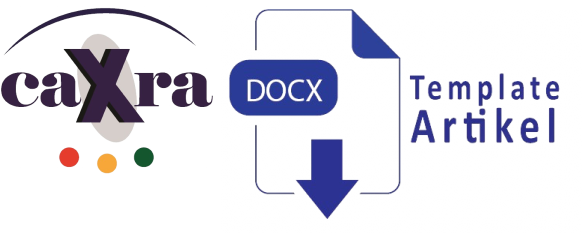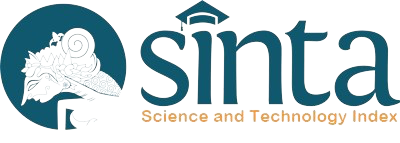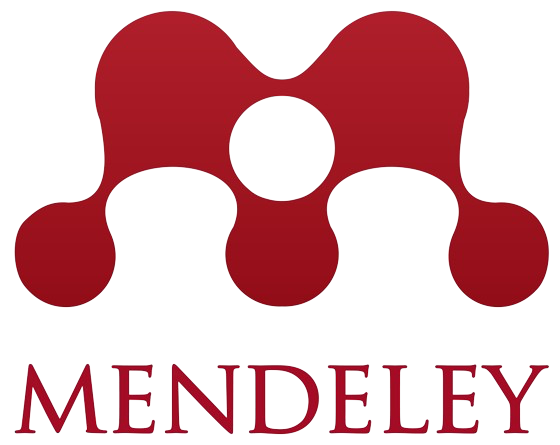Plagiarism Policy
Manuscript submitted to caXra will be screened for plagiarism using Turnitin plagiarism detection tool. caXra Journal will immediately reject papers leading to plagiarism or self-plagiarism. caXra wants to ensure that all authors are careful and comply with international standards for academic integrity, particularly on the issue of plagiarism.
Plagiarism occurs when an author takes ideas, information, or words from another source without proper credit to the source. Even when it occurs unintentionally, plagiarism is still a serious academic violation and unacceptable in international academic publications.
When the author learns specific information (a name, date, place, statistical number, or other detailed information) from a specific source, a citation is required. (This is only forgiven in cases of general knowledge, where the data is readily available in more than five sources or is common knowledge, e.g., the fact that Indonesia is the most populous Muslim country in the world.)
When the author takes an idea from another author, a citation is required even if the author then develops the idea further. This might be an idea about how to interpret the data, either what methodology to use or what conclusion to draw. It might be an idea about broad developments in a field or general information. Regardless of the idea, authors should cite their sources. In cases where the author develops the idea further, it is still necessary to cite the original source of the idea, and then in a subsequent sentence, the author can explain her or his more developed idea.
When the author takes words from another author, a citation and quotation marks are required. Whenever four or more consecutive words are identical to a source that the author has read, the author must use quotation marks to denote the use of another author's original words; just a citation is no longer enough.
Tadris Journal takes academic integrity very seriously, and the editors reserve the right to withdraw acceptance from a paper found to violate any of the standards set out above. For further information, potential authors can contact the editorial office at caxra@institutpendidikan.ac.id
Plagiarism Checker
The article that can be reviewed by editor board after completing the attachment of plagiarism checker and stated that article at least 75% is the origin. The following are the tools of checker:
- Plagiarisma
- Duplicity-Checker
- Turnitin
- Plagiarism Checker
- Other tools of plagiarism
Ethical Guideline for Journal Publication
The publication of an article in a peer-reviewed is an essential building block in the development of a coherent and respected network of knowledge. It is a direct reflection of the quality of the work of the authors and the institutions that support them. Peer-reviewed articles support and embody the scientific method. It is therefore important to agree upon standards of expected ethical behavior for all parties involved in the act of publishing: the author, the journal editor, the peer reviewer, the publisher and the society.
Elementary Teacher Education Program as publisher of caXra: Jurnal Pendidikan Sekolah Dasar takes its duties of guardianship over all stages of publishing seriously and we recognize our ethical and other responsibilities. We are committed to ensuring that advertising, reprint or other commercial revenue has no impact or influence on editorial decisions.
Publication decisions
The editor of the caXra: Jurnal Pendidikan Sekolah Dasar is responsible for deciding which of the articles submitted to the journal should be published. The validation of the work in question and its importance to researchers and readers must always drive such decisions. The editors may be guided by the policies of the journal's editorial board and constrained by such legal requirements as shall then be in force regarding libel, copyright infringement and plagiarism. The editors may confer with other editors or reviewers in making this decision.
Fair play
An editor at any time evaluate manuscripts for their intellectual content without regard to race, gender, sexual orientation, religious belief, ethnic origin, citizenship, or political philosophy of the authors.
Confidentiality
The editor and any editorial staff must not disclose any information about a submitted manuscript to anyone other than the corresponding author, reviewers, potential reviewers, other editorial advisers, and the publisher, as appropriate.
Disclosure and conflicts of interest
Unpublished materials disclosed in a submitted manuscript must not be used in an editor's own research without the express written consent of the author.
Duties of Reviewers
Contribution to Editorial Decisions
Peer review assists the editor in making editorial decisions and through the editorial communications with the author may also assist the author in improving the paper.
Promptness
Any selected referee who feels unqualified to review the research reported in a manuscript or knows that its prompt review will be impossible should notify the editor and excuse himself from the review process.
Confidentiality
Any manuscripts received for review must be treated as confidential documents. They must not be shown to or discussed with others except as authorized by the editor.
Standards of Objectivity
Reviews should be conducted objectively. Personal criticism of the author is inappropriate. Referees should express their views clearly with supporting arguments.
Acknowledgement of Sources
Reviewers should identify relevant published work that has not been cited by the authors. Any statement that an observation, derivation, or argument had been previously reported should be accompanied by the relevant citation. A reviewer should also call to the editor's attention any substantial similarity or overlap between the manuscript under consideration and any other published paper of which they have personal knowledge.
Disclosure and Conflict of Interest
Privileged information or ideas obtained through peer review must be kept confidential and not used for personal advantage. Reviewers should not consider manuscripts in which they have conflicts of interest resulting from competitive, collaborative, or other relationships or connections with any of the authors, companies, or institutions connected to the papers.
Duties of Authors
Reporting standards
Authors of reports of original research should present an accurate account of the work performed as well as an objective discussion of its significance. Underlying data should be represented accurately in the paper. A paper should contain sufficient detail and references to permit others to replicate the work. Fraudulent or knowingly inaccurate statements constitute unethical behavior and are unacceptable.
Originality and Plagiarism
The authors should ensure that they have written entirely original works, and if the authors have used the work and/or words of others that this has been appropriately cited or quoted.
Multiple, Redundant or Concurrent Publication
An author should not in general publish manuscripts describing essentially the same research in more than one journal or primary publication. Submitting the same manuscript to more than one journal concurrently constitutes unethical publishing behaviour and is unacceptable.
Acknowledgement of Sources
Proper acknowledgment of the work of others must always be given. Authors should cite publications that have been influential in determining the nature of the reported work.
Authorship of the Paper
Authorship should be limited to those who have made a significant contribution to the conception, design, execution, or interpretation of the reported study. All those who have made significant contributions should be listed as co-authors. Where there are others who have participated in certain substantive aspects of the research project, they should be acknowledged or listed as contributors. The corresponding author should ensure that all appropriate co-authors and no inappropriate co-authors are included on the paper, and that all co-authors have seen and approved the final version of the paper and have agreed to its submission for publication.
Disclosure and Conflicts of Interest
All authors should disclose in their manuscript any financial or other substantive conflict of interest that might be construed to influence the results or interpretation of their manuscript. All sources of financial support for the project should be disclosed.
Fundamental errors in published works
When an author discovers a significant error or inaccuracy in his/her own published work, it is the author’s obligation to promptly notify the journal editor or publisher and cooperate with the editor to retract or correct the paper.
Screening for Plagiarism Policy
All manuscripts must be free from plagiarism contents. All authors are suggested to use plagiarism detection software for similarity checking. Editors check the plagiarism detection of articles in this journal using Turnitin software at the beginning of submission. The maximum similarity is 25%.














